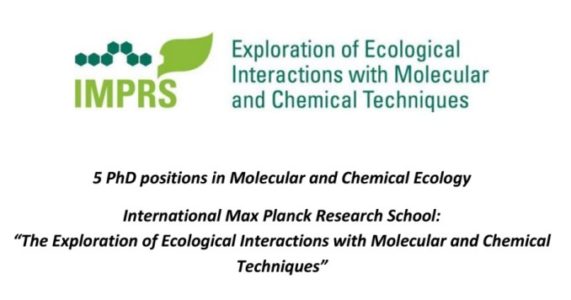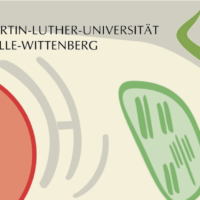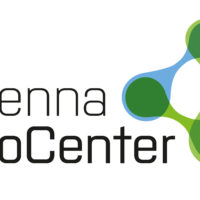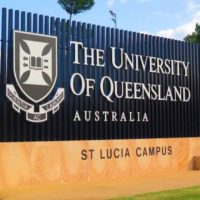Học Bổng Bốn Phương
5 học bổng PhD ngành sinh thái học phân tử và hóa học tại Đức 2018
- Chi tiết bài viết
- Bài viết liên quan
Trường Nghiên Cứu Max Plank Quốc Tế (The International Max Planck Research School – IMPRS) tại Jena, Cộng Hòa Liên Bang Đức, đang tìm kiếm 5 sinh viên PhD trong lĩnh vực Sinh thái học Phân tử và Hóa học. Chủ đề nghiên cứu sử dụng các kỹ thuật phân tử, hóa học, và neuroethology để khám phá thực nghiệm các tương tác sinh thái học trong điều kiện tự nhiên. Chương trình cung cấp 15 dự án trên các sinh vật và hướng tiếp cận khác nhau.
Điều kiện nộp đơn:
- Có bằng thạc sỹ (Master) hoặc tương đương về một trong các ngành sau: ecology, bioinformatics, analytical chemistry, entomology, neurobiology, molecular biology, biochemistry, plant physiology, và genetics.
- Ứng cử viên có bằng đại học (Bachelor) xuất sắc có thể nộp đơn.
The Research School is a joint initiative of the Max Planck Institute for Chemical Ecology, Friedrich Schiller University, and the Leibniz Institute for Natural Product Research and Infection Biology Jena. We offer state-of-the art equipment, an excellent research environment, supervision by a thesis committee and a structured training program including scientific courses, training in transferable skills and internal conferences. Successful candidates will receive a Max Planck support contract. There are no tuition fees and the working language is English.
Application deadline is August 18, 2017.
Projects offered in 2017
Please find below a list of projects we offer for this year’s recruitment. All projects are highly integrative and require the collaboration between different research groups. Applicants can identify up to three projects of interest. It is possible to change project preferences during the recruitment in Jena.
Project 1: Surfing the surface: Hydrophobins on fungal hyphae
Supervisors: Prof. Dr. Erika Kothe, Institute for Microbiology, Friedrich Schiller University Jena; Prof. Dr. Jonathan Gershenzon, Department of Biochemistry, Max Planck Institute for Chemical Ecology; Dr. Aleš Svatoš, Research Group Mass Spectrometry, Max Planck Institute for Chemical Ecology
Project 2: Mycorrhizal roots and flowers – does a common signaling system lead to phenotype associations among AMF and pollination preferences in a native tobacco?
Supervisors: Prof. Dr. Ian Baldwin, Department of Molecular Ecology, Max Planck Institute for Chemical Ecology; Prof. Dr. Erika Kothe, Institute for Microbiology, Friedrich Schiller University Jena
Project 3: Towards GC-MS: Adapting SIRIUS and CSI: FingerID for Electron Ionization fragmentation
Supervisors: Prof. Dr. Sebastian Böcker, Chair of Bioinformatics, Friedrich Schiller University Jena; Prof. Dr. Georg Pohnert, Chair of Instrumental Analytics, Friedrich Schiller University Jena; Dr. Aleš Svatoš, Research Group Mass Spectrometry, Max Planck Institute for Chemical Ecology
Project 4: Multiple chemical compounds from Mortierella hyalina, a root-colonizing fungus, promote plant performance
Supervisors: Prof. Dr. Ralf Oelmüller, Department of Plant Physiology, Friedrich Schiller University Jena; Dr. Axel Mithöfer, Department of Bioorganic Chemistry, Max Planck Institute for Chemical Ecology
Project 5: Opposing the mustard-oil bomb with a glutathione bomb
Supervisors: Dr. Franziska Beran, Research Group Detoxification and Sequestration in Insects, Max Planck Institute for Chemical Ecology; Prof. Dr. David Heckel, Department of Entomology, Max Planck Institute for Chemical Ecology
Project 6: The role of plant defense mechanisms for maintaining the diversity of host races in the pea aphid
Supervisors: Dr. Grit Kunert, Research Group Plant-Aphid Interactions, Max Planck Institute for Chemical Ecology; Prof. Dr. Jonathan Gershenzon, Department of Biochemistry, Max Planck Institute for Chemical Ecology; Dr. Axel Mithöfer, Department of Bioorganic Chemistry, Max Planck Institute for Chemical Ecology; Prof. Dr. Ralf Oelmüller, Department of Plant Physiology, Friedrich Schiller University Jena; Dr. Alexandra Furch, Research Group Plant Vascular Biology, Friedrich Schiller University Jena
Project 7: Evolution in an invasive species: How does sexual communication evolve in a recently invaded moth species?
Supervisors: Prof. Dr. David Heckel, Department of Entomology, Max Planck Institute for Chemical Ecology; Dr. Astrid Groot, Institute for Biodiversity and Ecosystem Dynamics, University of Amsterdam
Project 8: Thriving in waste: The role of microbiota in black soldier fly adaptation to a highly variable environment
Supervisors: Dr. Heiko Vogel, Project Group Host Plant Adaptation, Max Planck Institute for Chemical Ecology; Dr. Shantanu Shukla, Project Group Host Plant Adaptation, Max Planck Institute for Chemical Ecology; Prof. Dr. David Heckel, Department of Entomology, Max Planck Institute for Chemical Ecology
Project 9: Molecular profiling Drosophila olfactory sensory neurons
Supervisors: Prof. Dr. Bill Hansson, Department of Evolutionary Neuroethology, Max Planck Institute for Chemical Ecology; Dr. Sofia Lavista-Llanos, Project Group Drosophila Neurogenetics, Max Planck Institute for Chemical Ecology
Project 10: Specificity, phylogeny and fitness contributions of phytoplasma effector proteins
Supervisors: Prof. Dr. Günter Theißen, Department of Genetics, Friedrich Schiller University Jena; Prof. Dr. Jonathan Gershenzon, Department of Biochemistry, Max Planck Institute for Chemical Ecology; Dr. Axel Mithöfer, Department of Bioorganic Chemistry, Max Planck Institute for Chemical Ecology
Project 11: Desert ant navigation based on olfactory cues
Supervisors: Dr. Markus Knaden, Project Group Insect Behavior, Max Planck Institute for Chemical Ecology; Dr. Silke Sachse, Research Group Olfactory Coding, Max Planck Institute for Chemical Ecology
Project 12: How bright and how nasty: the economics of variable aposematic traits
Supervisors: Dr. Hannah Rowland, Max Planck Institute for Chemical Ecology; Jon Blount, University of Exeter, UK
Project 13: Communication: Fungal metabolites as response to organismic interaction
Supervisors: Prof. Dr. Erika Kothe, Institute for Microbiology, Friedrich Schiller University Jena; Prof. Dr. Wilhelm Boland, Department of Bioorganic Chemistry, Max Planck Institute for Chemical Ecology; Dr. Katrin Krause, Institute for Microbiology, Friedrich Schiller University Jena
Project 14: Mustard oils and fruit flies: Explaining the toxic effects of isothiocyanates on a model insect
Supervisors: Prof. Dr. Jonathan Gershenzon, Department of Biochemistry, Max Planck Institute for Chemical Ecology; Dr. Daniel Giddings Vassão, Project Group Detoxification and Mode of Action, Max Planck Institute for Chemical Ecology; Dr. Markus Knaden, Project Group Insect Behavior, Max Planck Institute for Chemical Ecology; Dr. Sofia Lavista-Llanos, Project Group Drosophila Neurogenetics, Max Planck Institute for Chemical Ecology
Project 15: Identification and functional role of male pheromones in Manduca
Supervisors: Dr. Sonja Bisch-Knaden, Department of Evolutionary Neuroethology, Max Planck Institute for Chemical Ecology; Dr. Aleš Svatoš, Research Group Mass Spectrometry, Max Planck Institute for Chemical Ecology
Nguồn: Dr. Nguyễn Tấn Trung







